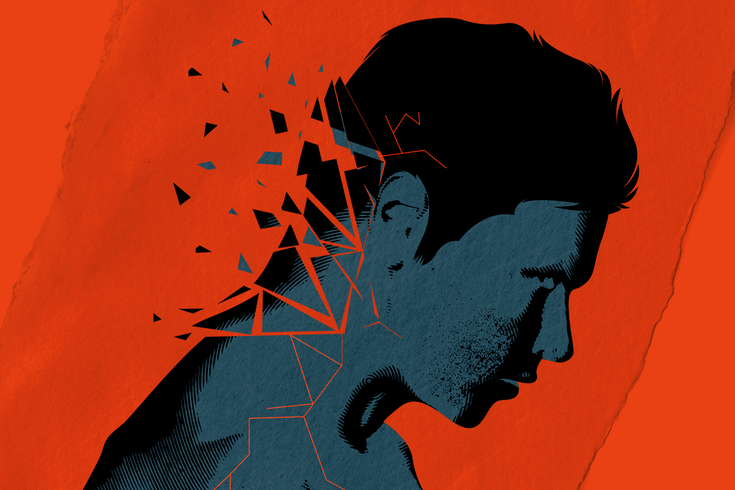
I used to read the Australian version of Men’s Health – https://www.menshealth.com.au/
Aspects of it were really good. Very practical advice on a range of topics from diet, to exercise, to work, relationships and productivity.
But eventually I got tired of the constant fascination with ‘abs’ and the excessively jock-like nature of the magazine. I stopped reading.
But today I opened an email from a colleague who shared an article from the editor of the American Men’s Health magazine.
It was on the mental health of men.
It was an honest and unfortunately accurate portrayal of the challenges of talking about mental health with men.
The issue is not that men’s lives are any harder than women’s, or that the challenges of life lead more men to experience mental health problem than women.
The issue is that a frustrating mixture of genetic, social and cultural factors mean a lot of men a) still can’t recognise their own mental ill health and b) shut down or ‘bottle it up” if they do.
It’s a strange phenomenon if you ask me.
The notion of being a “problem-solver” seems quite strongly baked into the social construction of the idea of a ‘man’. Something wrong with the car – fix it. Something wrong with the house – fix it. Something wrong at work – fix it. Netflix goes down – fix it. Underpants no longer have functioning elastic – keep wearing them fix it.
Yet, when the problem is something going haywire with our thoughts and feelings, suddenly our working model of how to deal with becomes ignore it, pretend it is not happening, squash it down, blame others or cover it with more work/more alcohol.
Now clearly I have the advantage of having studied psychology. I know that anyone, regardless of gender, race, age, occupation etc can have the experience of mental ill health. That mental ill health is not the consequences of weakness, or a lack of ‘character’.
I know that our brains are working overtime, helping us walk the fine line between the natural chaos of the world, and the order we desire. That it doesn’t necessarily take a lot to send those brains off track.
The idea that a man’s mind would fall into an emotional abyss is no more surprising to me than the idea that a woman’s would, or a child, or even a dog (we give dogs anti-depressants).
But perhaps my view does not represent the view held by other men.
Perhaps the view that men should magically be immune to mental and emotional dysfunction is still rife.
I certainly hope not. Such views stop men asking for help. Such views stop men investing time and effort into their mental health. Such views mean some men feel suicide is a better option than admitting vulnerability and starting the admittedly tough, but rewarding journey back to health.
So my ramblings aside, if you are a man, and you are reading this, and you feel like you are in an emotional abyss, whether it be sadness, anxiety, anger or shame, remember that your life is worth as much as anyone’s. There is nothing magical about your gender that says you should be able to cope better than others. But there is something innately human about your suffering that means if you reach out, you will find something to grab hold of.
And weirdly, whilst I never thought I would say it, the articles from Men’s Health during Mental Health Awareness Month might be a great starting point.

